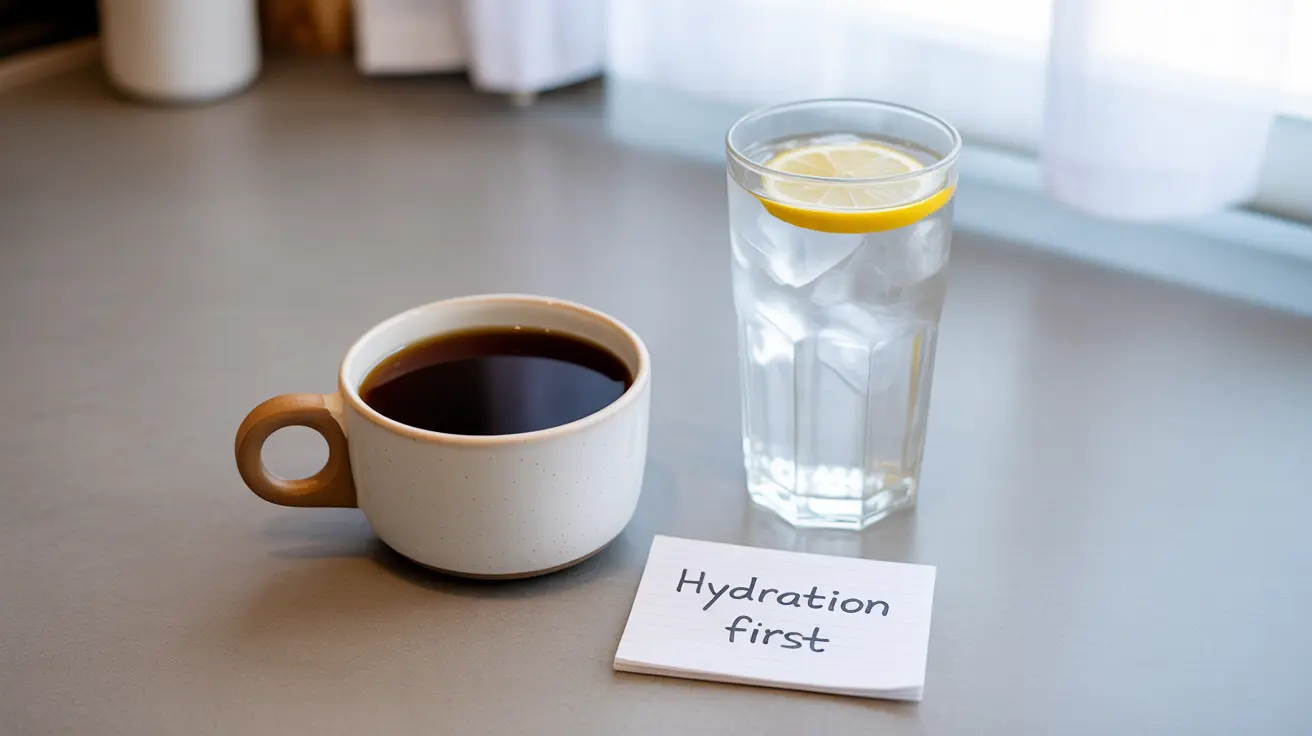For many, the day doesn't truly begin until that first sip of coffee. But as we reach for our mugs, a question often brews in the back of our minds: is coffee a diuretic? This article will explore the relationship between coffee consumption and hydration, addressing common concerns and providing evidence-based insights to help you make informed decisions about your daily coffee intake.
Understanding how coffee affects our body's water balance is crucial for maintaining optimal health, especially for those who rely on their daily caffeine fix. Let's dive into the science behind coffee's impact on hydration and uncover the truth about its diuretic properties.
The Diuretic Nature of Coffee: Myth or Reality?
Coffee has long been associated with diuretic effects, but the reality is more nuanced than many believe. While it's true that caffeine, the primary active compound in coffee, can have mild diuretic properties, the overall impact on hydration is generally minimal for regular coffee drinkers.
Research suggests that the body develops a tolerance to the diuretic effects of caffeine over time. This means that for habitual coffee drinkers, the fluid loss from increased urination is often negligible and easily offset by the water content of the coffee itself.
How Caffeine Affects Urine Production
Caffeine stimulates the kidneys to produce more urine by increasing blood flow and reducing the reabsorption of sodium and water. However, this effect is typically short-lived and less pronounced in those who consume coffee regularly.
It's important to note that the diuretic effect of coffee is dose-dependent. Moderate coffee consumption (3-4 cups per day) is unlikely to cause significant dehydration in most people.
Coffee Consumption and Hydration Balance
Contrary to popular belief, coffee can contribute to your daily fluid intake. The water in coffee counts towards your overall hydration needs, and for many people, coffee is a significant source of dietary water.
While coffee may increase urine output slightly, it doesn't typically lead to a net loss of fluids. In fact, studies have shown that moderate coffee consumption does not impair fluid balance any more than water in regular coffee drinkers.
Balancing Coffee Intake with Water Consumption
To maintain proper hydration while enjoying your coffee, consider the following tips:
- Drink water alongside your coffee to ensure adequate fluid intake
- Pay attention to your body's signals for thirst and hydration
- Consider your overall diet and other sources of fluids throughout the day
- Be mindful of excessive coffee consumption, which may lead to other side effects
Impact of Coffee on Bladder Health
While coffee's diuretic effects are often overstated, its impact on bladder function is worth considering. The caffeine in coffee can stimulate bladder activity, potentially leading to increased urinary frequency and urgency, especially in individuals with sensitive bladders or pre-existing urinary issues.
For most people, moderate coffee consumption is unlikely to cause significant bladder problems. However, those with overactive bladders or urinary incontinence may want to monitor their coffee intake and consult with a healthcare provider if they notice any adverse effects.
Managing Caffeine Consumption for Optimal Health
To enjoy the benefits of coffee while minimizing potential negative effects on hydration and overall health, consider the following guidelines:
- Limit intake to 3-4 cups (400mg of caffeine) per day for most healthy adults
- Be aware of other sources of caffeine in your diet, such as tea, chocolate, and some medications
- Listen to your body and adjust consumption based on individual tolerance and health needs
- Stay hydrated by consuming a variety of fluids throughout the day, not just coffee
By following these recommendations, you can maintain a healthy balance between enjoying your coffee and supporting your body's hydration needs.
Frequently Asked Questions
- Is coffee a diuretic, and how does it affect my body's hydration levels?
Coffee contains caffeine, which has mild diuretic properties. However, for regular coffee drinkers, the effect on hydration levels is minimal. The water in coffee contributes to overall fluid intake, and the body develops a tolerance to caffeine's diuretic effects over time. Moderate coffee consumption is unlikely to significantly impact hydration levels in most people.
- What are the symptoms of excessive caffeine consumption, and how can I manage them?
Symptoms of excessive caffeine intake can include jitteriness, anxiety, rapid heartbeat, insomnia, and digestive issues. To manage these symptoms, reduce your caffeine intake gradually, stay hydrated, and consider switching to decaf or herbal alternatives. If symptoms persist, consult a healthcare professional.
- Can drinking coffee lead to dehydration, or is it safe to consume it regularly?
Regular, moderate coffee consumption is generally safe and unlikely to cause dehydration in most people. While coffee may slightly increase urine output, it doesn't typically lead to a net loss of fluids. The water in coffee contributes to your daily fluid intake. However, it's important to maintain a balanced diet and consume other fluids throughout the day.
- How does caffeine in coffee impact urinary frequency, and what are the implications for my bladder health?
Caffeine can stimulate bladder activity, potentially increasing urinary frequency and urgency. For most people, moderate coffee consumption doesn't cause significant bladder issues. However, individuals with sensitive bladders or pre-existing urinary problems may experience more pronounced effects. If you notice increased urinary issues after consuming coffee, consider reducing intake or consulting a healthcare provider.
- What are the recommended guidelines for balancing coffee consumption with adequate water intake to maintain proper hydration?
To maintain proper hydration while enjoying coffee, aim for moderate consumption (3-4 cups per day) and drink water alongside your coffee. Pay attention to your body's thirst signals, and ensure you're getting fluids from various sources throughout the day. For most adults, a total daily fluid intake of about 2.7-3.7 liters from all sources (including coffee) is recommended, but individual needs may vary based on factors like activity level and climate.




